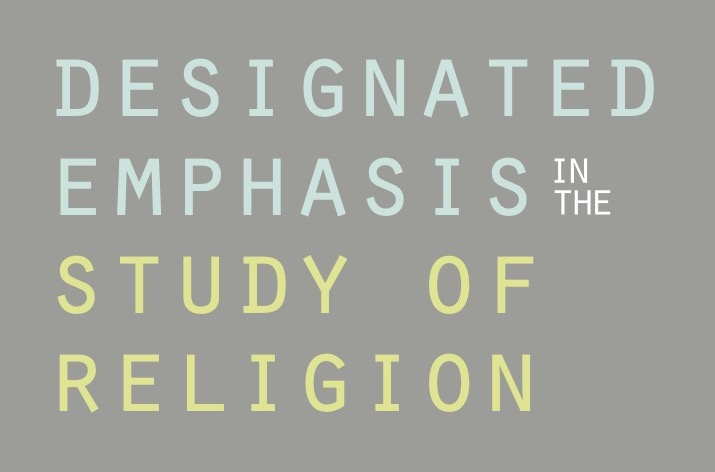The Graduate Group in the Study of Religion is thrilled to welcome the latest cohort of the DE in the Study of Religion. The new cohort includes graduate students from Berkeley departments in the humanities. Please join us in welcoming our two new DESR students!
 Hu Hsu is a third-year PhD student in the Department of History at the University of California, Berkeley. Previously trained as a historian at National Taiwan University and the University of Wisconsin-Madison, Hu has a comprehensive interest in Chinese intellectual history from the early to modern period. His current research focuses on how the Neo-Confucian scholar Wang Yangming’s (1472-1529) thought was received and reconstructed in late-Qing and Republican China. This ongoing project explores how pre-modern resources contributed to the formation of “Chinese modernity,” in particular the religiosity of Confucianism in the twentieth century. Despite its engagement in philosophical issues, this project is also a cultural history about the Neo-Confucian ideas in modern societies, which aims to explore how Wang Yangming became the cultural symbol of the invented “Chinese tradition” in an era of nationalism. Hu has published multiple journal articles (in Chinese) on the topic of neo-Confucianism and Chinese intellectual history.
Hu Hsu is a third-year PhD student in the Department of History at the University of California, Berkeley. Previously trained as a historian at National Taiwan University and the University of Wisconsin-Madison, Hu has a comprehensive interest in Chinese intellectual history from the early to modern period. His current research focuses on how the Neo-Confucian scholar Wang Yangming’s (1472-1529) thought was received and reconstructed in late-Qing and Republican China. This ongoing project explores how pre-modern resources contributed to the formation of “Chinese modernity,” in particular the religiosity of Confucianism in the twentieth century. Despite its engagement in philosophical issues, this project is also a cultural history about the Neo-Confucian ideas in modern societies, which aims to explore how Wang Yangming became the cultural symbol of the invented “Chinese tradition” in an era of nationalism. Hu has published multiple journal articles (in Chinese) on the topic of neo-Confucianism and Chinese intellectual history.
Andrew Blough is a PhD student in the German department at UC Berkeley. They joined the department in 2019 after receiving an M.A. in Philosophy from Duquesne University that year. Pursuing DEs in critical theory and religious studies, they are interested most broadly in the relation of the moral and the aesthetic. Their aims of investigation are currently threefold: 1) The historical constellation of philosophical aesthetics with practical and moral concerns in the German tradition, primarily from A.G. Baumgarten through G.W.F. Hegel, though this extends back to and beyond Martin Luther; 2) Literary and scientific strategies invoking or troubling these relations, for example the casuistry of early empirical psychology and its influence on the psychological novel or the longer history of literary physiognomics; and 3) How the implications of these strategies bear on negotiating the invisibility and hyper-visibility of marginalized identities today, that is, either utilized as strategies of self-fashioning or deconstructed. Ultimately this line of research seeks to shift the notion of the aesthetic from its place in the normative realm of taste toward a constructivist one of self-fashioning.
Congratulations, all!

